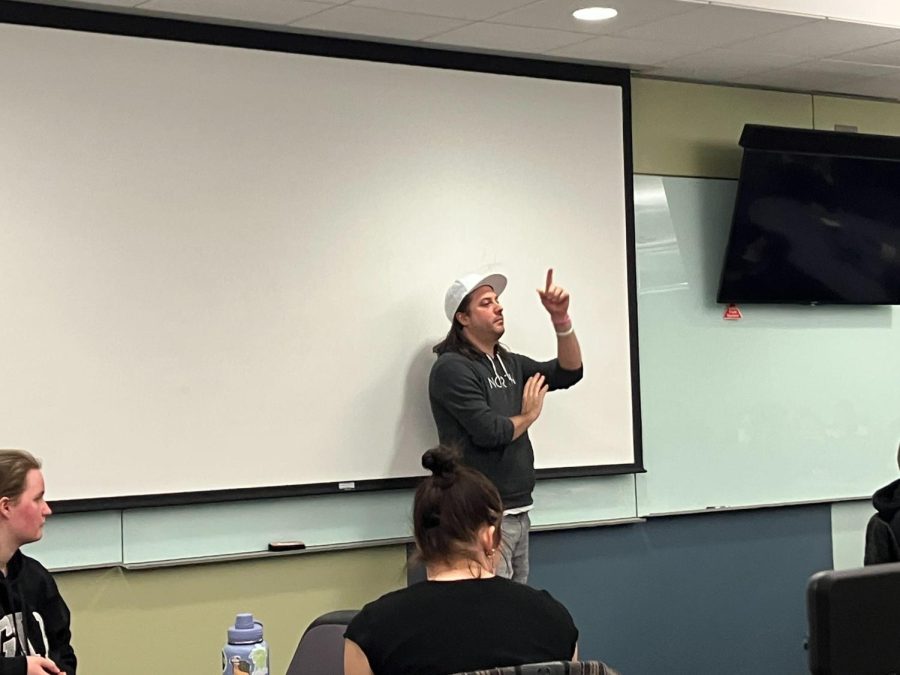On Stage, founded by University of Minnesota alum Lucas Erickson, is engaging in theater outreach programs around campus this semester, hoping to spark an interest in theater among younger audiences.
On Stage focuses on partnering with smaller theater companies as a way to reach broader audiences. The plays they choose to discuss with students are often related to prevalent social, cultural and political issues, according to their mission statement.
“For students and younger people, I think there’s a lot that goes into younger audiences going to see theater. First, is it even relevant to them and their life?” Erickson said. “We’re just trying to make some sort of connection to their personal lives so that maybe they go see live local theater.”
There are many reasons local plays are having trouble finding theater audiences according to Qiuxia Welch, the marketing, communications and front-of-house director for the University’s theater arts and dance program.
“In a world where people have access to countless forms of entertainment at their fingertips, convincing them to leave their homes and attend a live theater show can be difficult,” Welch said.
One of On Stage’s educators, Wendy Knox, the artistic director at Frank Theatre in south Minneapolis, said she hopes On Stage will invite new audiences to not only enjoy theater but to learn from it too.

“On Stage strives to engage college students in the idea that theater is not simply for entertainment but can help us understand and explore questions we have about the world we live in. Theater can be of equal use to the study of environmental science as it is to history, for example,” Knox said.
In a University environmental sciences class on Feb. 8, On Stage discussed the environmental issues in “Mlima’s Tale.” The 2018 play written by New York-based playwright Lynn Nottage follows the illegal elephant ivory trade in Kenya.
The students moved into sections across the classroom based on their views on hunting animals for sport and held discussions about poaching, environmental ethics and the ivory trade.
As the students in the environmental sciences class learned about “Mlima’s Tale” and how local theater companies operate in the Twin Cities, they began to engage with Erickson and Knox more energetically throughout the class period.
At the end of the activity, Erickson said one student approached him to express their opinion on the “Mlima’s Tale” characters, saying they were too shy to speak aloud during the activity. Erickson said he found this moment particularly touching.
“I thought that it was cool that whatever we were doing could bring this student to say something to me that they normally wouldn’t,” he said.















